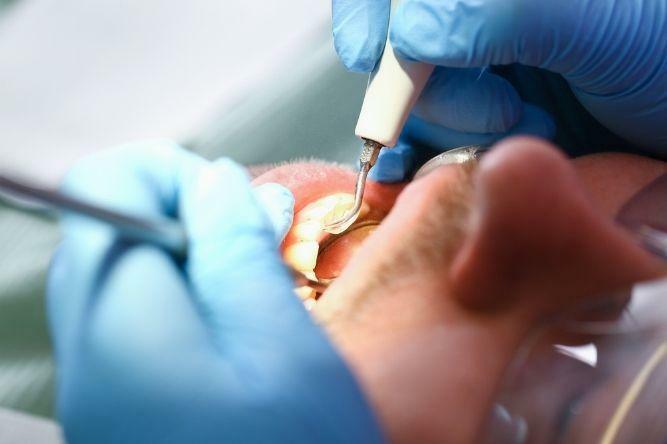You already know that it’s important to take care of our teeth; you’ve heard it a thousand times, from your parents to the dentist. But what about your gums? These connective tissues deliver nutrients to our teeth and hold them firmly in place.
Some patients think that bloody or inflamed gums are nothing to worry about. But periodontal disease has serious consequences. If you develop gum disease, you could wind up with:
- Gum infections (that may spread to other areas of the body)
- Loose teeth
- Dental caries (cavities)
- Gumline recession
Healthy gums are part of a healthy lifestyle. Our oral health is connected to the rest of our bodies. To maintain your overall health, you must start with your teeth. And that includes your gums.
If you want to prevent gum bleeding and preserve your smile, what can you do? We’ve put together the most common causes of this problem, along with a few effective treatment options:
Why Are My Gums Bleeding?
What makes your gums bleed? Sometimes, it’s obvious; after flossing, you may notice a bit of blood in your saliva. But other times, you can’t pinpoint a reason. The cause of your bleeding gums may be any of the following:
Pregnancy gingivitis. You know that pregnancy is associated with all kinds of changes in your body, from weight fluctuations to late-night cravings. But did you know that pregnant women often experience bleeding gums? This is due to hormonal fluctuations that make your teeth more vulnerable to bacteria. If you are carrying a child, schedule frequent dental appointments to monitor for bleeding gums.
Dentures. When you’re wearing dentures, pay attention to how they fit in your mouth. Are they too tight around your gums? If you wear dentures that are too tight, they may construct your mouth and cause bleeding gums. You could develop sores from the pressure of your dentures. Talk to your dentist about adjusting your dentures.
Poor oral health. Have you been brushing and flossing regularly? Inadequate plaque removal can cause swollen gums. If you’re establishing a new flossing routine, you can expect bleeding gums for the first few days. But if the bleeding persists, it’s time to call a dental professional.
Vitamin deficiencies. A balanced diet can prevent you from developing periodontal disease. Try to consume more foods rich in vitamin C (oranges, broccoli, and tomatoes) and vitamin K (collard greens, spinach, and kale).
Gumline recession. When bacteria attack the tissues in your mouth, it causes the gums to pull away from your teeth. If your teeth look longer than usual, it could be due to gum recession, which is a sign of gum disease.
Other health conditions. It’s important to talk to your dentist about your medical history. You might be taking blood-thinning medications to treat other health problems, but blood thinners can make your gums more susceptible to bleeding. Everything in your body is connected; that’s why it’s important to talk to your dentist about any concerns.
Warning Signs
Even occasional bleeding gums raise some cause for concern. If you notice these symptoms, you could be developing gum disease:
- Gums that bleed when you brush, floss, or eat food
- A receding gum line
- Red or inflamed gums
- Bad breath
- Increased sensitivity
Oral hygiene alone isn’t enough to reverse gum disease. If you notice any of these signs, we suggest booking a dental appointment as soon as possible. Gum disease can be reversed if it’s treated early enough.
How To Treat Bleeding Gums
If your dentist has diagnosed you with a form of gum disease, what’s the next step? There are a few ways you can reduce gum bleeding:
First, we suggest taking a closer look at your toothbrush. Do the bristles appear frayed and worn? You may be brushing too hard, which damages your gums. When you brush your teeth, use light pressure (make sure to use a soft-bristle toothbrush, too). You could also try electric toothbrushes, which can effectively remove plaque and promote better gum health.
Dental care is the number one way to treat bleeding gums. Whether you have a mild form or a more advanced form of gum disease, it’s important to seek regular treatment. Even though most people need their teeth cleaned every 6 months, we suggest more frequent cleanings if you have gum disease (about once every 4 months). Your dentist can check if the disease is advancing and help restore your gums.
Prevent Bleeding Gums
Have you ever heard the phrase, “Prevention is worth an ounce of cure?” It certainly holds true with periodontal disease. It’s much easier to prevent gum issues than treat them after they’ve developed. Here’s how:
First, we recommend that you see your dentist regularly. You can’t always prevent gum disease by simply brushing your teeth. Booking a professional cleaning is a great way to improve your oral hygiene. This advice holds true with any dental health issue.
Next, consume a healthy diet. Limit your intake of sugary foods, eat lots of vegetables, and don’t use any tobacco products.
A dry mouth can stimulate gum bleeding. Try to drink lots of water during the day. You can also try ingesting foods that stimulate saliva production, like dill pickles or lemonade.
Finally, use a hydrogen peroxide mouthwash. This can help hydrate your gum tissues and kill any bacteria.
Call a Dentist
Are you concerned about your gum health? Do you want to prevent a gum infection? Want to maintain healthy gums and prevent disease?
At our Winnipeg Dental Clinic, we can help you reverse the damage of gum disease. We’ll do a physical examination of your gum line and tissues to spot any signs of disease. To book your appointment, contact us today!
